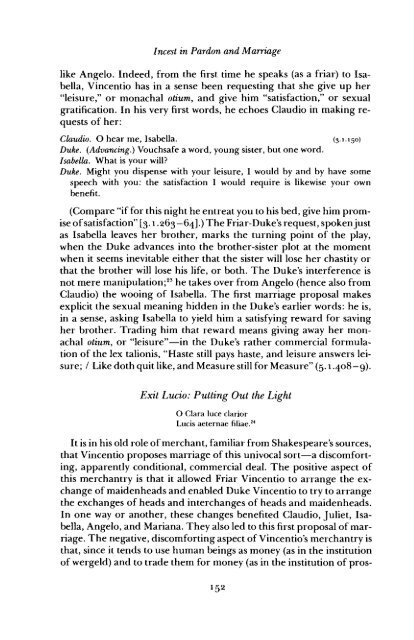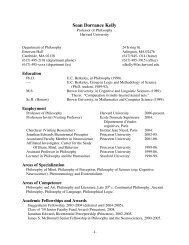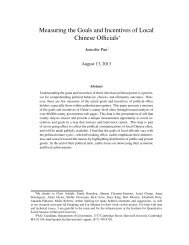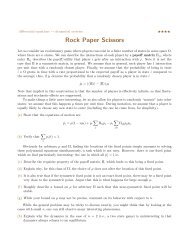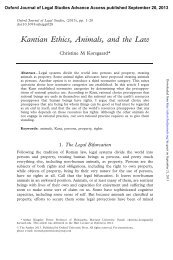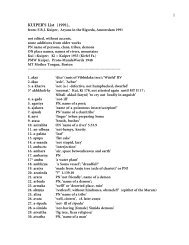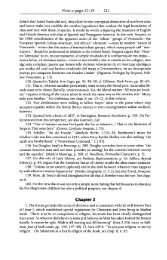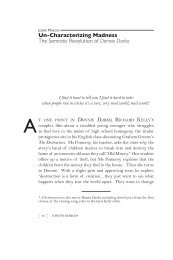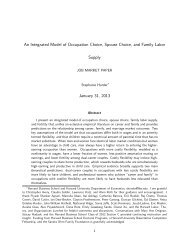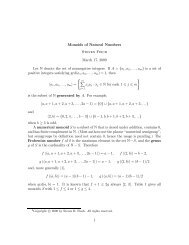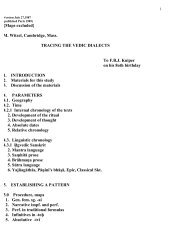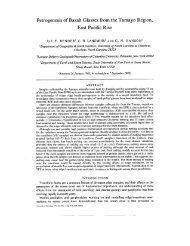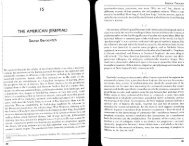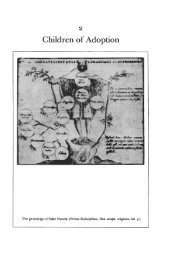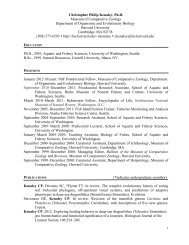Incest in Pardon and Marriage - People Fas Harvard
Incest in Pardon and Marriage - People Fas Harvard
Incest in Pardon and Marriage - People Fas Harvard
You also want an ePaper? Increase the reach of your titles
YUMPU automatically turns print PDFs into web optimized ePapers that Google loves.
<strong>Incest</strong> <strong>in</strong> <strong>Pardon</strong> <strong>and</strong> <strong>Marriage</strong><br />
like Angelo. Indeed, from the first time he speaks (as a friar) to Isa-<br />
bella, V<strong>in</strong>centio has <strong>in</strong> a sense been request<strong>in</strong>g that she give up her<br />
"leisure," or monachal otium, <strong>and</strong> give him "satisfaction," or sexual<br />
gratification. In his very first words, he echoes Claudio <strong>in</strong> mak<strong>in</strong>g re-<br />
quests of her:<br />
Claudio. 0 hear me, Isabella. (3.1.150)<br />
Duke. (Advanc<strong>in</strong>g.) Vouchsafe a word, young sister, but one word.<br />
Isabella. What is your will?<br />
Duke. Might you dispense with your leisure, I would by <strong>and</strong> by have some<br />
speech with you: the satisfaction I would require is likewise your own<br />
benefit.<br />
(Compare "if for this night he entreat you to his bed, give him promise<br />
of satisfaction" [3.1 .z63-641.) The Friar-Duke's request, spoken just<br />
as Isabella leaves her brother, marks the turn<strong>in</strong>g po<strong>in</strong>t of the play,<br />
when the Duke advances <strong>in</strong>to the brother-sister plot at the moment<br />
when it seems <strong>in</strong>evitable either that the sister will lose her chastity or<br />
that the brother will lose his life, or both. The Duke's <strong>in</strong>terference is<br />
not mere manip~lation;'~ he takes over from Angelo (hence also from<br />
Claudio) the woo<strong>in</strong>g of Isabella. The first marriage proposal makes<br />
explicit the sexual mean<strong>in</strong>g hidden <strong>in</strong> the Duke's earlier words: he is,<br />
<strong>in</strong> a sense, ask<strong>in</strong>g Isabella to yield him a satisfy<strong>in</strong>g reward for sav<strong>in</strong>g<br />
her brother. Trad<strong>in</strong>g him that reward means giv<strong>in</strong>g away her monachal<br />
otium, or "leisure"-<strong>in</strong> the Duke's rather commercial formulation<br />
of the lex talionis, "Haste still pays haste, <strong>and</strong> leisure answers leisure;<br />
I Like doth quit like, <strong>and</strong> Measure still for Measure" (5.1.408-9).<br />
Exit Lucio: Putt<strong>in</strong>g Out the Light<br />
0 Clara luce clarior<br />
Lucis aeternae filiae."<br />
It is <strong>in</strong> his old role of merchant, familiar from Shakespeare's sources,<br />
that V<strong>in</strong>centio proposes marriage of this univocal sort-a discomfort-<br />
<strong>in</strong>g, apparently conditional, commercial deal. The positive aspect of<br />
this merchantry is that it allowed Friar V<strong>in</strong>centio to arrange the ex-<br />
change of maidenheads <strong>and</strong> enabled Duke V<strong>in</strong>centio to try to arrange<br />
the exchanges of heads <strong>and</strong> <strong>in</strong>terchanges of heads <strong>and</strong> maidenheads.<br />
In one way or another, these changes benefited Claudio, Juliet, Isa-<br />
bella, Angelo, <strong>and</strong> Mariana. They also led to this first proposal of mar-<br />
riage. The negative, discomfort<strong>in</strong>g aspect of V<strong>in</strong>centio's merchantry is<br />
that, s<strong>in</strong>ce it tends to use human be<strong>in</strong>gs as money (as <strong>in</strong> the <strong>in</strong>stitution<br />
of wergeld) <strong>and</strong> to trade them for money (as <strong>in</strong> the <strong>in</strong>stitution of pros-


